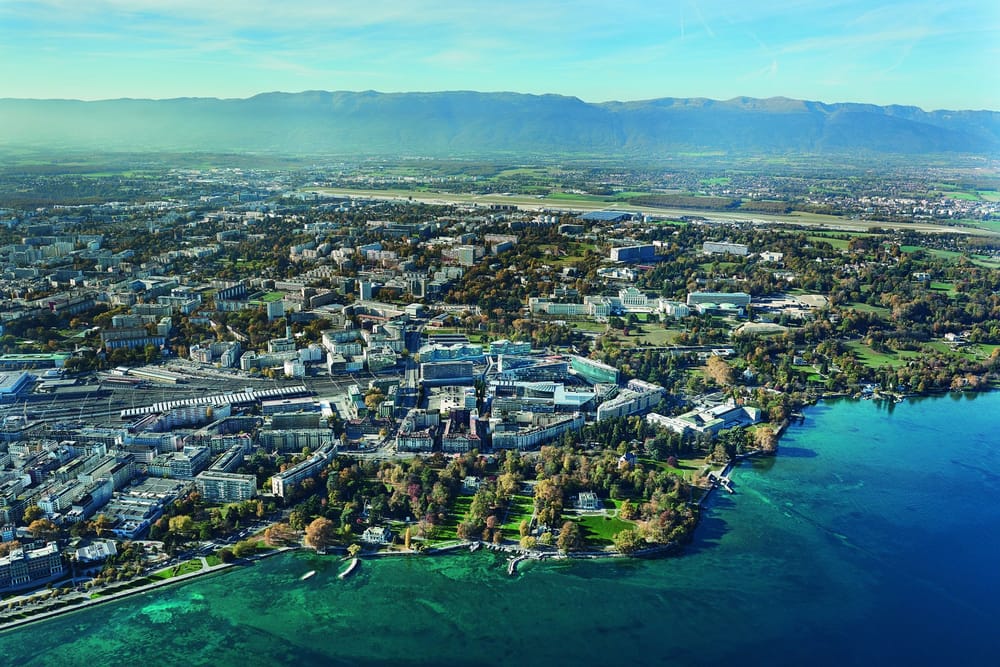By Jérôme Duberry
Technology has played a prominent role throughout the history of international relations, particularly due to the close link between technological innovation, security, and power. Its dual-use nature has been illustrated throughout the centuries: nuclear technology, biotechnology, neuroscience, and artificial intelligence have both benevolent and malevolent applications as well as unpredictable impacts depending on the social, economic, and environmental context.
The reality is complex and calls for equally complex answers. Yet technology is often presented as a quick and safe solution with tangible results that appeal to boards of directors, donors and voters. Evgeny Morozov made the term ‘techno-solutionism’ famous in his 2013 book To Save Everything, Click Here: The Folly of Technological Solutionism. In it, he describes our propensity to turn to technology as an easy solution to real-world challenges.
All technology is political. It is the result of choices and decisions made by a group of individuals and reflects values and interests that are localised both temporally and geographically. Without reflecting the diversity of the real world in the design of technologies, techno-solutionism reinforces existing practices of surveillance and excessive control over marginalised populations, thereby accentuating inequalities. In this regard, Philip Alston, UN Special Rapporteur on extreme poverty and human rights, sounds the alarm on the risks associated with the digitalisation of state services, which uses data and technology to automate, predict, monitor, target, and punish the poorest.
In the face of climate change, techno-solutionism proposes a vision of the world in which humans can totally control their environment. If the Anthropocene describes the emergence of a new geological age characterised by the advent of humans as the primary force of change on Earth, techno-solutionism promises us not unprecedented planetary disorder, but rather control that surpasses geophysical forces, a form of hyper-Anthropocene.
Techno-solutionism – as well as populism and reactionary politics – are both the causes of, and unfortunate attempts to respond to, the current radical uncertainty.
In so doing, this ideology aligns itself – willingly and unwillingly – with the worldview of right-wing populisms and other reactionary politics, which rigidly focuses the world’s thinking on a model of society that is outdated and denies the present challenges. The reactionary impulse is not new and resurfaces whenever there is a sudden and brutal change in society. It allows for the illusion of technological quick fixes and political slogans that simplify issues by proposing a return to a hypothetical past. In this way, they deny the complexity and the most disturbing truths of our contemporary times. Techno-solutionism – as well as populism and reactionary politics – are both the causes of, and unfortunate attempts to respond to, the current radical uncertainty.
What alternatives are available to us? How can we be comfortable with the discomfort of the world’s complexity? How can we ensure that technology contributes to democratic, social, and environmental innovation for the benefit of all?
First of all, we must realise that no single actor can respond to the current and future challenges alone. It is by developing innovative forms of collaboration, which include technology, the hard and social sciences, intergovernmental organisations and governments, civil society, and business in all their diversity, that we can respond to this convergence of challenges. New forms of public-private partnerships for sustainable development are emerging and demonstrating their relevance for combining both efficiency and other important qualities such as accountability, transparency and democracy.
Technology alone cannot do anything. It is through its implementation by humans that it can contribute to the common good or destroy it. And it is in its social and environmental context that we can understand the issues at stake.
We must also remain humble in the face of the complexity of human experience and the expected outcomes of technological innovation. Technology alone cannot do anything. It is through its implementation by humans that it can contribute to the common good or destroy it. And it is in its social and environmental context that we can understand the issues at stake. For this, the social sciences are well equipped to consider technology in its context as it relates to the diversity of human experience.
Finally, an approach to long-term forecasting that is participatory and engaged allows for the combination of innovative collaborative practices and methodologies for envisioning the future and influencing the present. In doing so, it is possible to no longer allow certain hegemonic actors to colonise the future but to open it up to everyone, particularly to young people. The future is here in each of us: it is an individual and collective competence. Individual and collective agency, as well as courage, are essential for guiding technological development and inspiring foresight. Science is also fundamental in guiding technological development and inspiring foresight.
In this context, Geneva, as a symbol of dialogue, peace, and democracy, has a special role to play. The city of Calvin, Rousseau, and Dunant combines expertise in innovative collaborative practices, foresight and technological governance, thanks to the presence of public and private actors committed to the governance of global challenges and technology.
About the Author
Dr. Jérôme Duberry is Managing Director of the Tech Hub, Academic Advisor of the Executive Programme in International Negotiation and Policy-Making, and Senior Research Fellow at the Albert Hirschman Centre on Democracy (AHCD) and at the Centre for International Environmental Studies (CIES).
Disclaimer
The opinions expressed in this publication are those of the authors. They do not purport to reflect the opinions or views of the Geneva Policy Outlook or its partner organisations.





